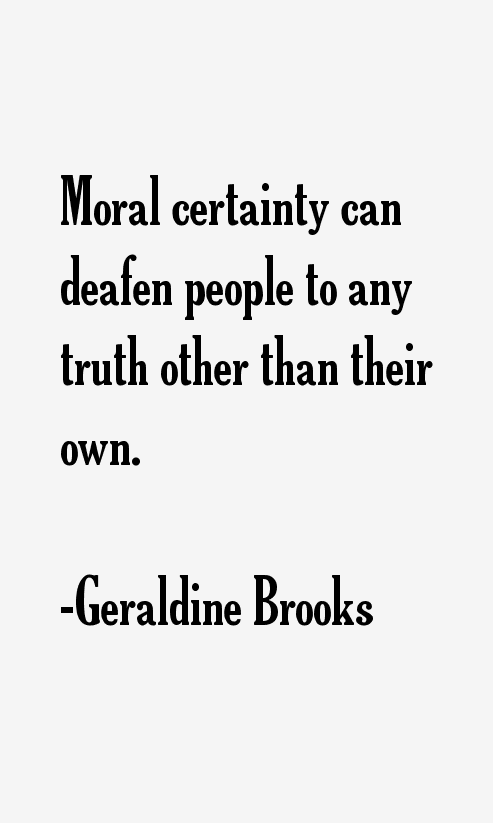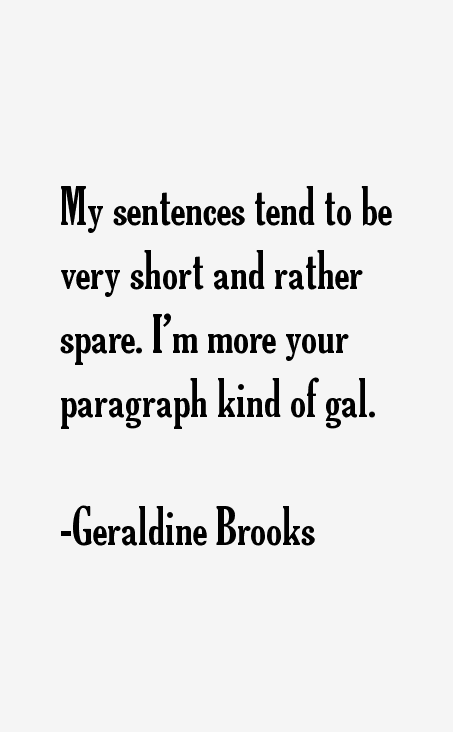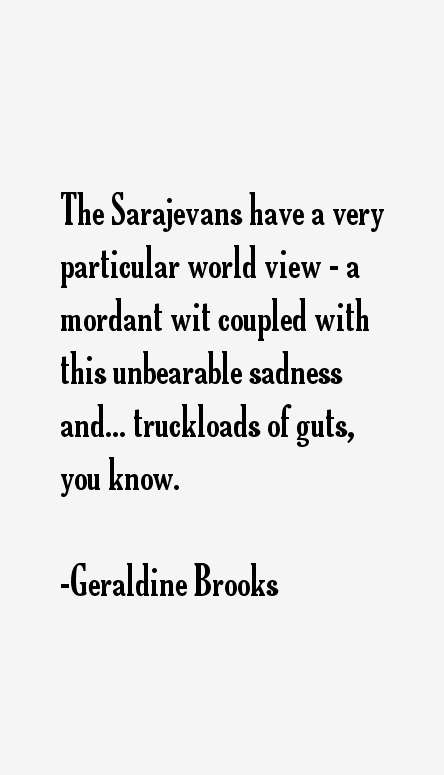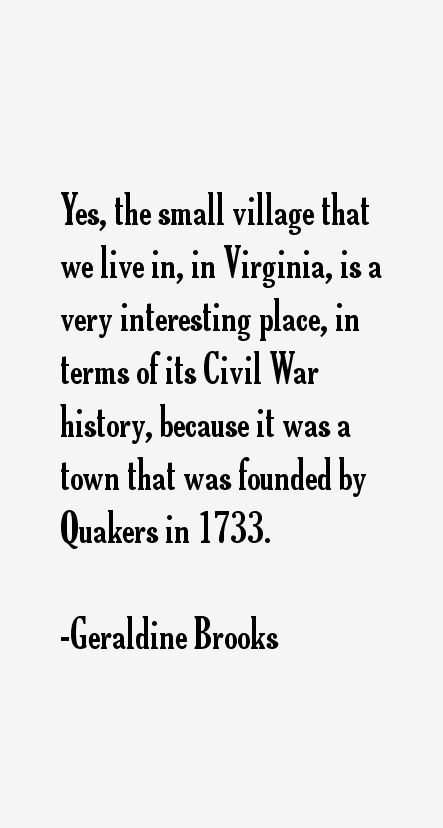Geraldine Brooks Quotes & Sayings (Page 3)
Geraldine Brooks quotes and sayings page 3 (deceased journalist born on Oct 29, 1925). Here's quote # 21 through 30 out of the 54 we have for her.
“You can't write about the past and ignore religion. It was such a fundamental, mind-shaping, driving force for pre-modern societies. I'm very interested in what religion does to us - its capacity to create love and empathy or hatred and violence.”
“I swim in a sea of words. They flow around me and through me and, by a process that is not fully clear to me, some delicate hidden membrane draws forth the stuff that is the necessary condition of my life.”
“For most people, chemotherapy is no longer the chamber of horrors we often conceive it to be. Yes, it is an ordeal for some people, but it wasn't for me, nor for most of the patients I got to know during my four months of periodic visits to the chemo suite.”

“Moral certainty can deafen people to any truth other than their own.”

“My sentences tend to be very short and rather spare. I'm more your paragraph kind of gal.”

“The Sarajevans have a very particular world view - a mordant wit coupled with this unbearable sadness and... truckloads of guts, you know.”
“I had been afraid of breast cancer, as I suspect most women are, from the time I hit adolescence. At that age, when our emerging sexuality is our central preoccupation, the idea of disfigurement of a breast is particularly horrifying.”

“Yes, the small village that we live in, in Virginia, is a very interesting place, in terms of its Civil War history, because it was a town that was founded by Quakers in 1733.”
“Because I worked as a newspaper reporter for about 14 years before attempting my first novel, I learned to write under almost any circumstances- by candle light, in longhand, in African villages where there was no power, under shelling in Kurdistan.”
“And when I'd be reporting in Israel, Palestinians would say, the Jews they're not like us, and the Jews would say the same things about the Palestinians, they don't want what we want. And I never bought it as a reporter and I don't buy it as a novelist. I think, you know, the sound of somebody crying for their lost child sounds the same.”
Geraldine Brooks Quotes Rating
No Ratings Yet
Leave A Comment
























